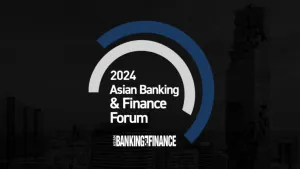
Korean banks' creditworthiness feared to deteriorate on back of diminished growth outlook
The next 12-18 months look gloomy.
Moody's Investors Service says its change in outlook on Korea's banking system to negative from stable reflects its assessment that the overall creditworthiness of Korean banks will deteriorate over the next 12-18 months.
"While our previous stable outlook had anticipated some weakening of profitability and pressure on asset quality, the operating environment for banks is deteriorating amid Korea's diminished growth outlook and ongoing corporate sector restructuring," says Sophia Lee, a Moody's Vice President and Senior Credit Officer.
Moody's conclusions were contained in its just-released annual outlook for Korea's banking system.
Here's more from Moody's:
Moody's analysis is based on five drivers: Operating Environment -- deteriorating; Asset Quality and Capital -- deteriorating; Funding and Liquidity -- stable; Profitability and Efficiency -- deteriorating; and Systemic Support -- stable.
Moody's baseline scenario assumes real GDP growth of 2.5% in 2016 in Korea, below that of 2.6% in 2015 and the weakest growth since 2012, as external demand remains weak.
Moody's sees risk that the government's efforts to achieve its growth target and address issues such as high household debt and corporate sector restructuring will lead to policy measures that negatively affect the banks' profitability and asset quality.
Asset quality is also under pressure from weak fundamentals in Korea's corporate sector, which remains burdened by overcapacity, increased competition and weak global demand.
Profitability will also decline in 2016 on the back of lower interest income and rising credit charges. The current below-target inflation leaves room for further rate cuts by the Bank of Korea, which could further depress lending margins, says Moody's.
While funding used to be a weakness of Korean banks, this has improved due to macro-prudential regulations implemented after the global financial crisis. Combined with an expectation for slowing loan growth, Moody's expects Korean banks' funding profiles to remain stable.
Furthermore, the system's average liquidity coverage ratio of 117% in the third quarter in 2015 testifies to its strong overall liquidity position.
Finally, systemic support remains stable. The Korean government has historically provided strong support to domestic banks, and no national or regional bank has been liquidated in the past two decades.













 Advertise
Advertise










